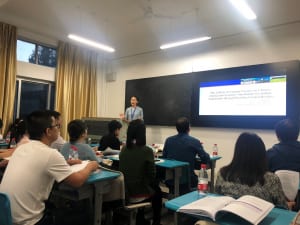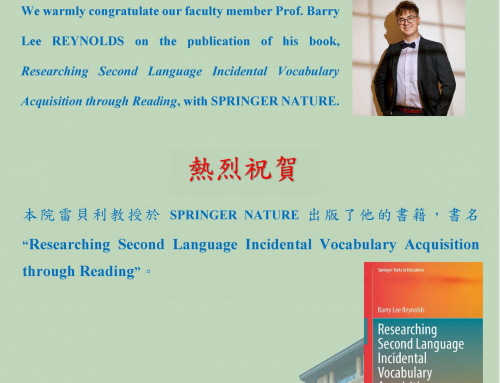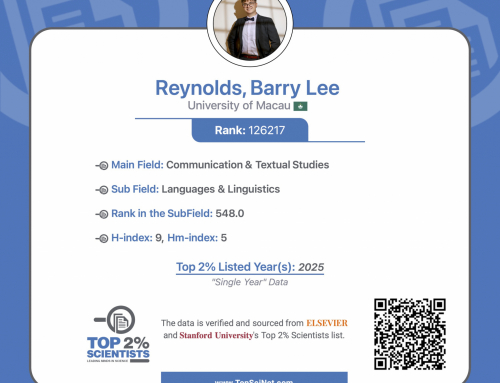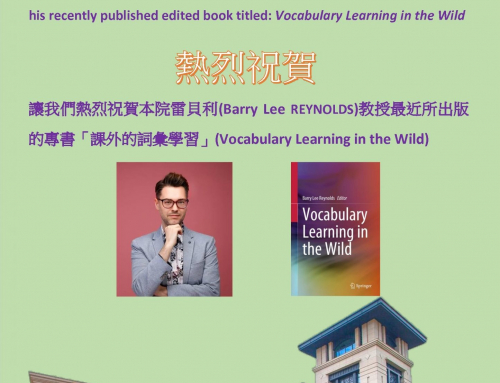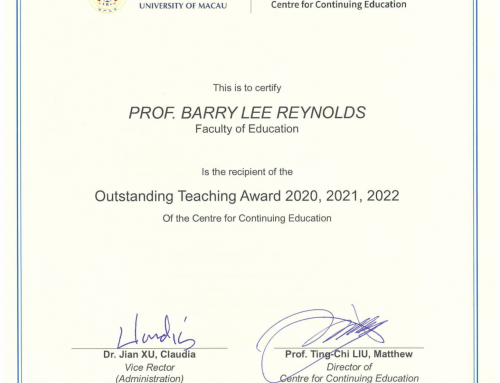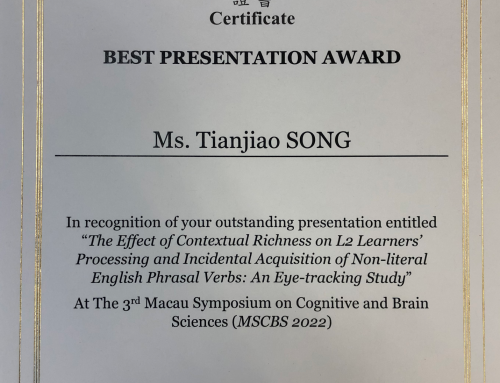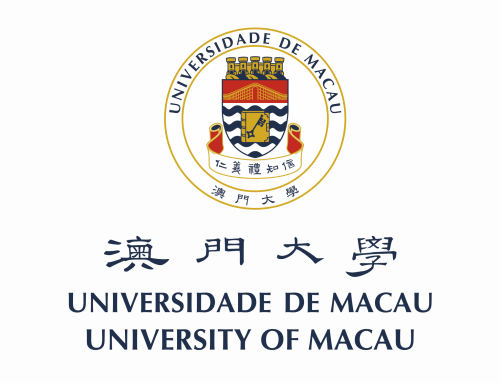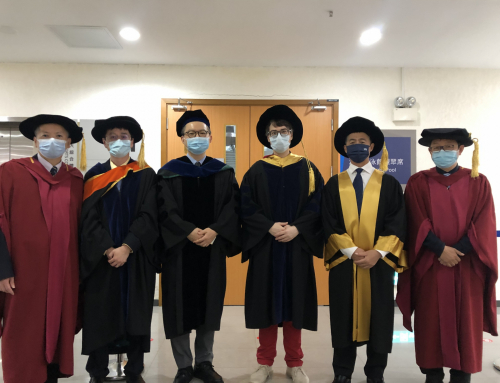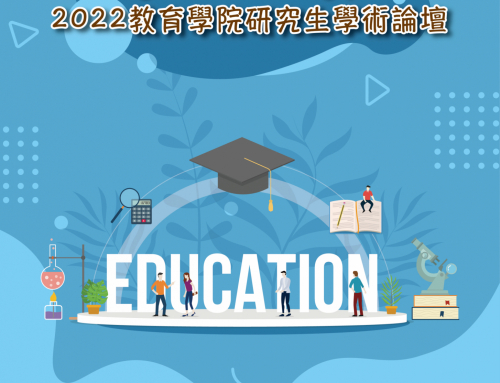Theme: Innovations in English Education Research and Practice
Conference Date: 18th to 20th October
Ding Chen, one of the PhD students in the ALLL lab, had a proposal accepted for a presentation at the 2019 CELEA conference held in Wuhan, China. Below Ding Chen provides an overview of the conference, her participation, and what she took back with her after attending.
CELEA 2019 Conference held from the 18th to 20nd of October in Wuhan, China at Central China Normal University invited English language educators and researchers from institutes in China and overseas to present and share their research on English language education. Over 400 EFL teaching and learning experts and researchers attended the conference; they gave 5 plenary speeches, organized 3 concurrent sessions, 12 seminars, 12 colloquia, and 12 round table meetings. The conference covered a variety of topics regarding almost every important aspect of English education research and practice in the Chinese context. Below I provide my self-reflection of attending this conference.
My presentation titled “The Effects of Learner Factors on Chinese adolescent Learners’ Incidental Vocabulary Acquisition through Reading Graded Readers” was put into a concurrent session under the topic of China compulsory English education research. The session covered a wide range of topic from Chinese Gaokao Reform for the subject of English to a case study of English teacher’s collective course preparation in a high school. The presentation attracted around 30 attendees who were postgraduate students and researchers.
It would be very hard to decide which session to attend after going through the conference booklet as it is so diversified and informative. Some scholars adopted a macro perspective on the future directions of English education in China. For example, Prof. Sun Youzhong gave a keynote on innovative training of qualified foreign language majors in higher education in China, which aroused attendees’ awareness as to what linguistic and non-linguistic competence should be promoted for learners in the 21st century. Also, discussion about issues in English education in rural areas was held. Although I am not doing education policy related studies, their exploration and attempts have informed me of the status quo of English education research in China. Most scholars worked on a micro level with instructions, textbook development, and language competence assessment as their research of interest. Prof. Han Zhaohong emphasized how usage-based instruction can be utilized to promote L2 development through reading and writing, which is inspiring as it is relevant to a theoretical framework that I might use in my thesis about incidental vocabulary acquisition through reading. A group of editors and researchers from the Foreign Language Teaching and Research Press gave a series of talks on evaluating textbooks, which provides some clues on how to select teaching materials. A seminar of pragmatics assessment of China’s Standards of English has motivated me to ponder over a collocation measurement review I am conducting which leads to me to put measuring pragmatic routines aside for a separate study. In a word, the talks I attended have not only expanded my horizon of the field but also informed and inspired me in one way or another in my own research. Besides the formal talks I attended, the conference has also provided a good opportunity for informal communications with other scholars who share the same research interest.
